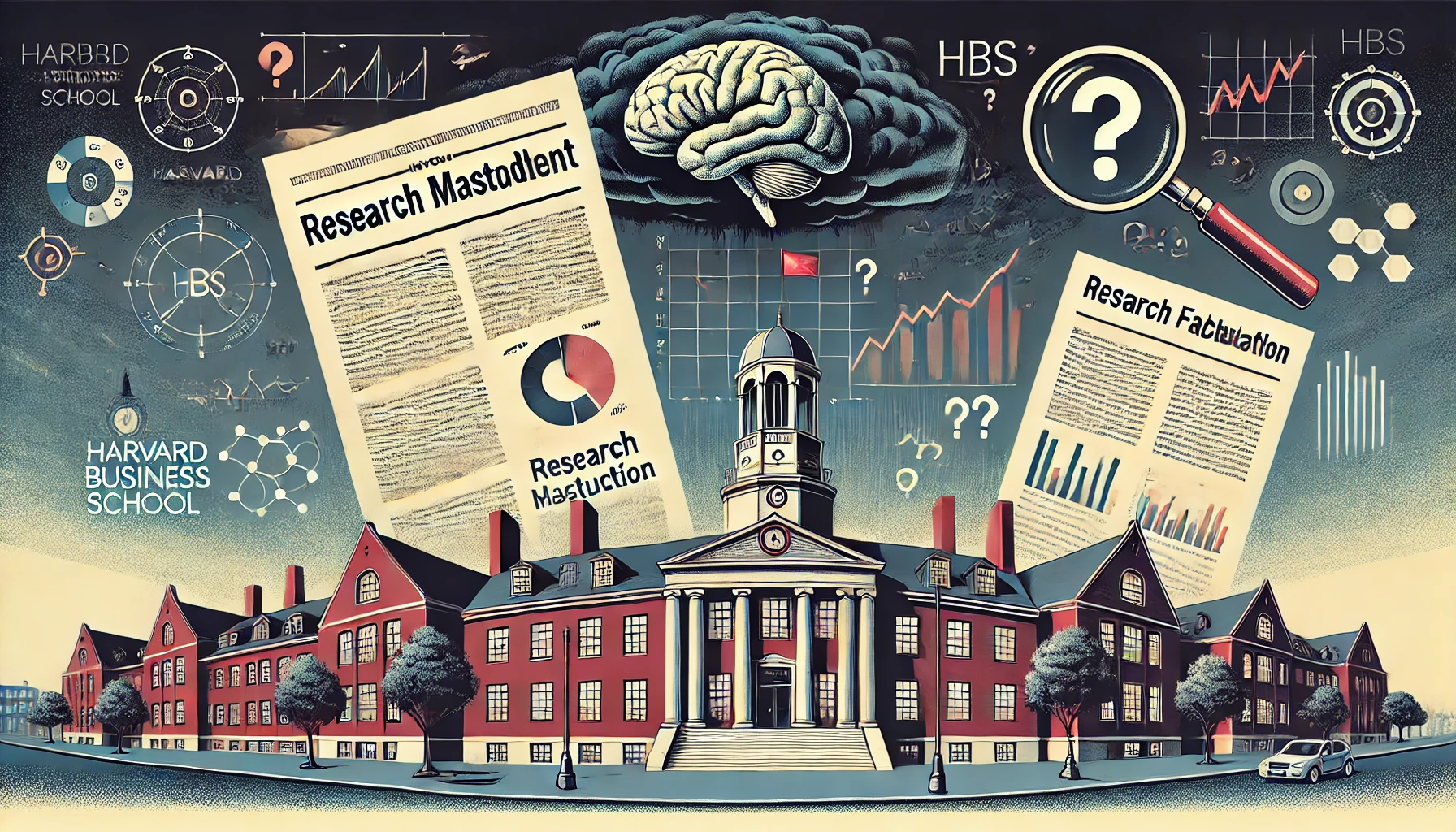Harvard Business School (HBS), renowned for its academic rigor and global influence, is grappling with a major scandal involving allegations of research misconduct by one of its high-profile faculty members. Francesca Gino, a tenured professor known for her work on behavioral science, has been accused of fabricating data in multiple published studies.
The allegations, first reported in 2023, stem from an internal investigation conducted by Harvard University, which found evidence of intentional, knowing, or reckless research misconduct. Gino has denied the accusations but has been placed on unpaid administrative leave while the investigation and its fallout continue to unfold.
The Allegations
Francesca Gino, who gained prominence for her research on honesty, decision-making, and ethics, is accused of falsifying data in at least four papers published in reputable academic journals. The investigation found anomalies in datasets that appeared to have been manipulated to produce favorable results, undermining the credibility of her findings.
One of the papers in question, published in Proceedings of the National Academy of Sciences (PNAS), examined how simple cues can encourage honesty in business settings. Investigators claim that some of the data used in the study was fabricated, casting doubt on the validity of the research and its implications.
These findings were corroborated by the independent watchdog group Data Colada, which first raised concerns about the integrity of Gino’s research. Their analysis pointed out inconsistencies in the reported data that could not be explained without deliberate manipulation.
The Fallout
Harvard’s investigation and subsequent actions have sent shockwaves through the academic community. Research misconduct cases at elite institutions like HBS are rare, and the allegations have sparked broader conversations about the pressures to produce groundbreaking results in competitive academic environments.
“This scandal is a wake-up call for academia,” said Dr. James Porter, a professor of ethics at MIT. “The pursuit of recognition and funding can sometimes overshadow the commitment to integrity, which is the foundation of scientific research.”
In response to the findings, Harvard has begun reviewing all of Gino’s past work and has initiated measures to strengthen oversight of research practices. Meanwhile, academic journals that published her studies are conducting their own reviews, with some papers already retracted or flagged with expressions of concern.
Broader Implications
The case raises questions about the safeguards in place to prevent and detect research misconduct. While technological advances have made it easier to identify data manipulation, experts argue that systemic changes are needed to address the root causes of unethical behavior in academia.
Many researchers point to the “publish or perish” culture, which rewards high-impact findings over replication studies or null results, as a contributing factor. Others emphasize the need for greater transparency and accountability in the research process, including open data sharing and peer review reforms.
The scandal has also reignited discussions about trust in academic research. Behavioral science, in particular, has faced criticism for a “replication crisis,” where many high-profile findings fail to hold up under scrutiny. The allegations against Gino add to the skepticism surrounding the field.
What’s Next for HBS?
Harvard Business School has pledged to take the matter seriously and is working to restore trust in its academic integrity. In a statement, HBS leadership expressed their commitment to upholding the highest standards of scholarship and ensuring that all research conducted under their name meets rigorous ethical standards.
For Francesca Gino, the road ahead remains uncertain. While she has denied any wrongdoing and filed a defamation lawsuit against Harvard, her reputation has taken a significant hit. The outcome of her case could set a precedent for how academic institutions handle allegations of misconduct in the future.
As the story continues to unfold, the scandal serves as a stark reminder of the importance of integrity in academic research—a value that remains as crucial as the discoveries themselves.
